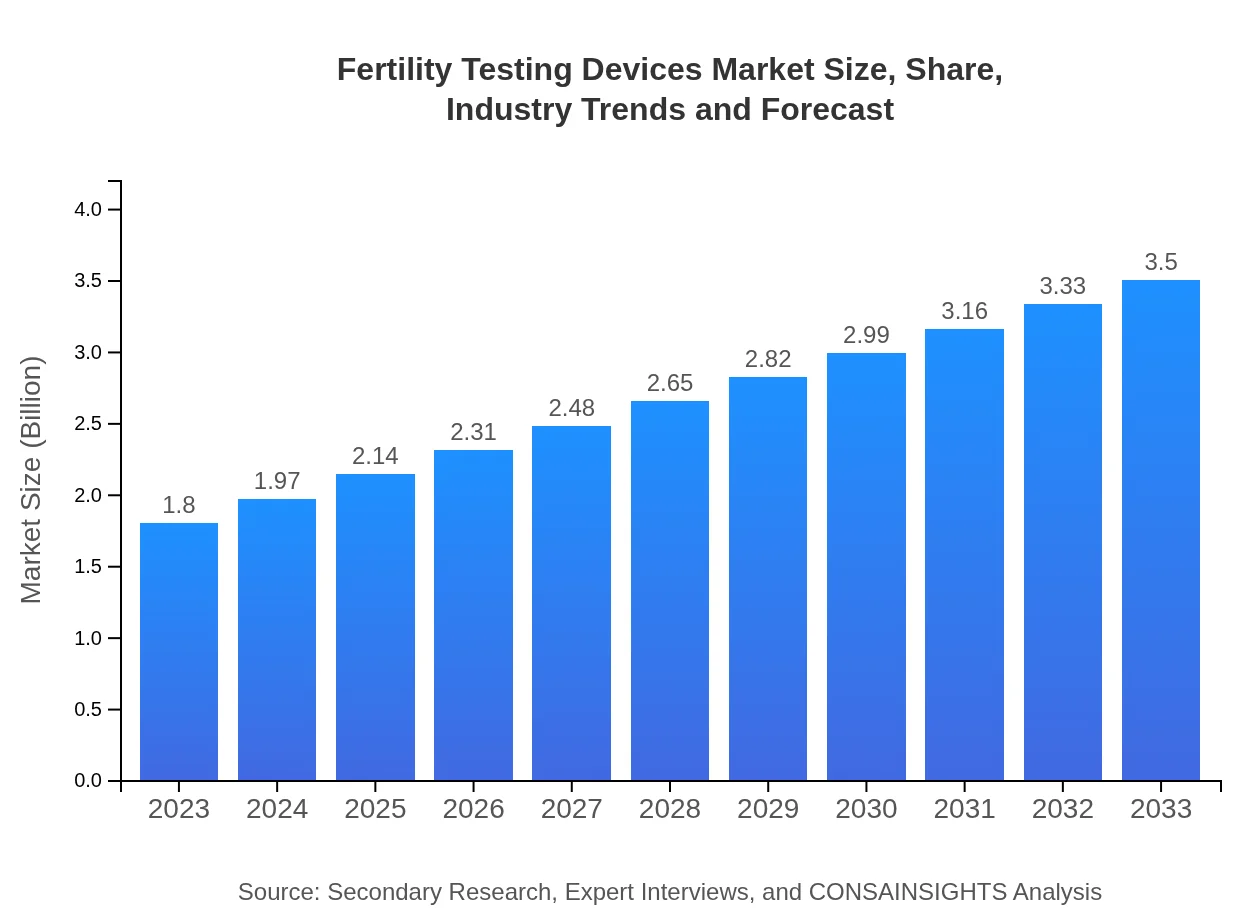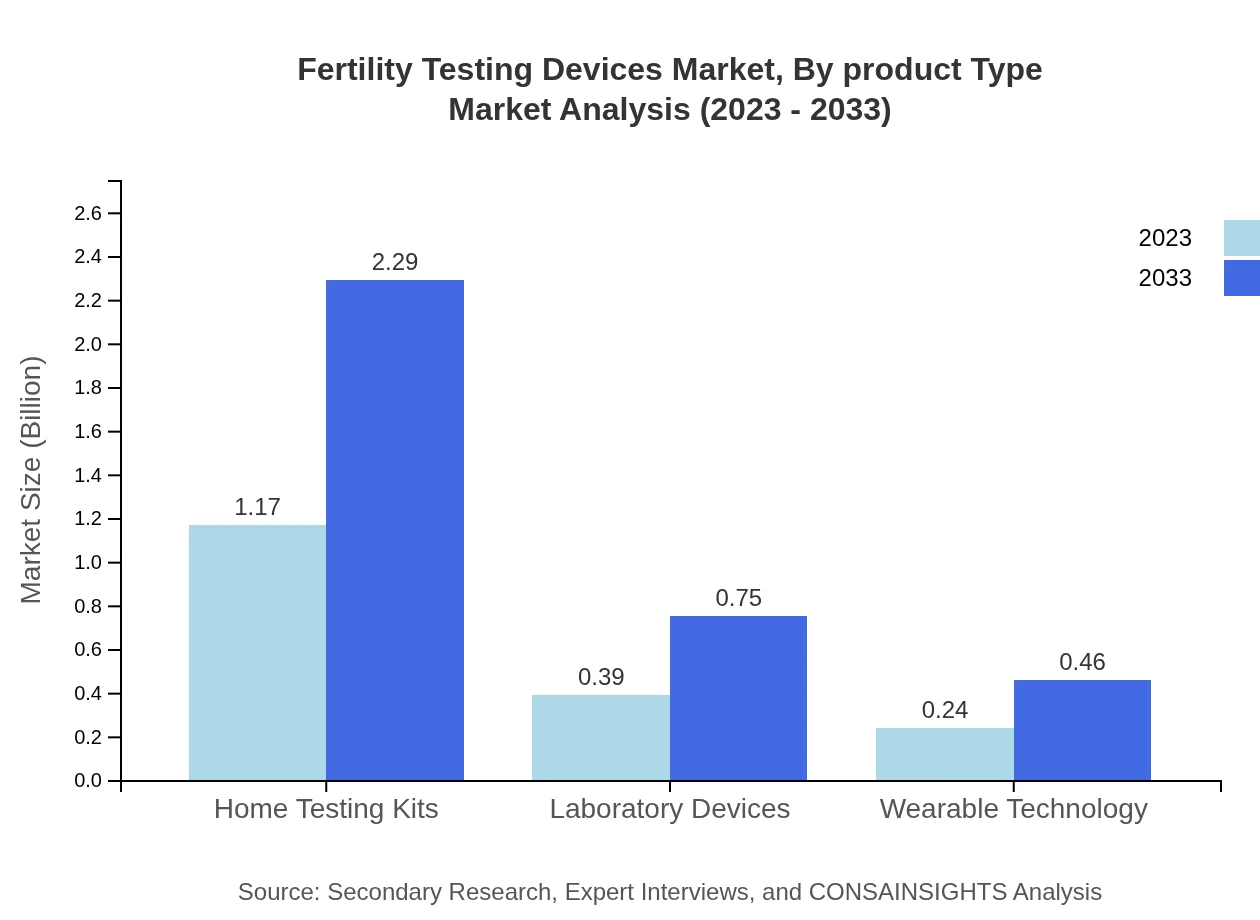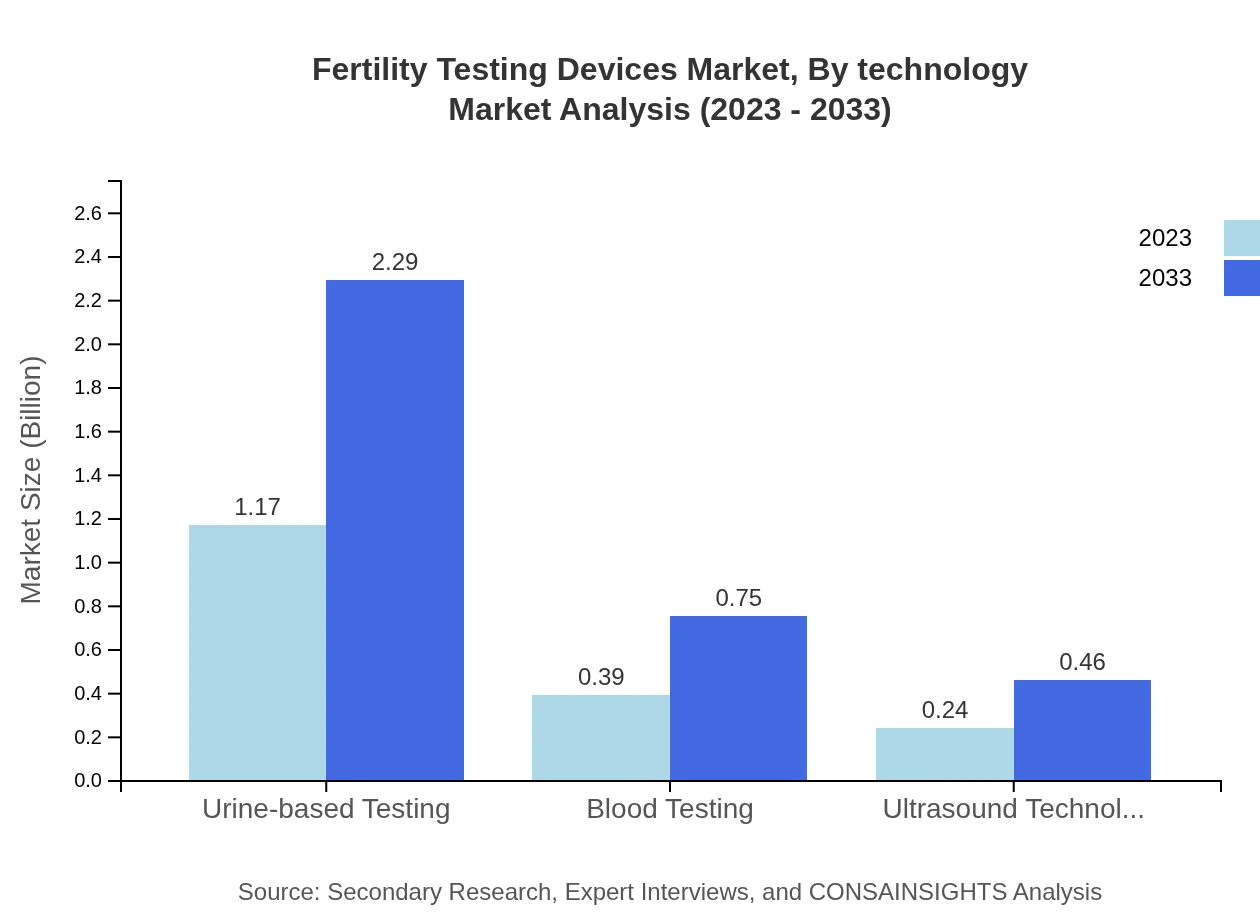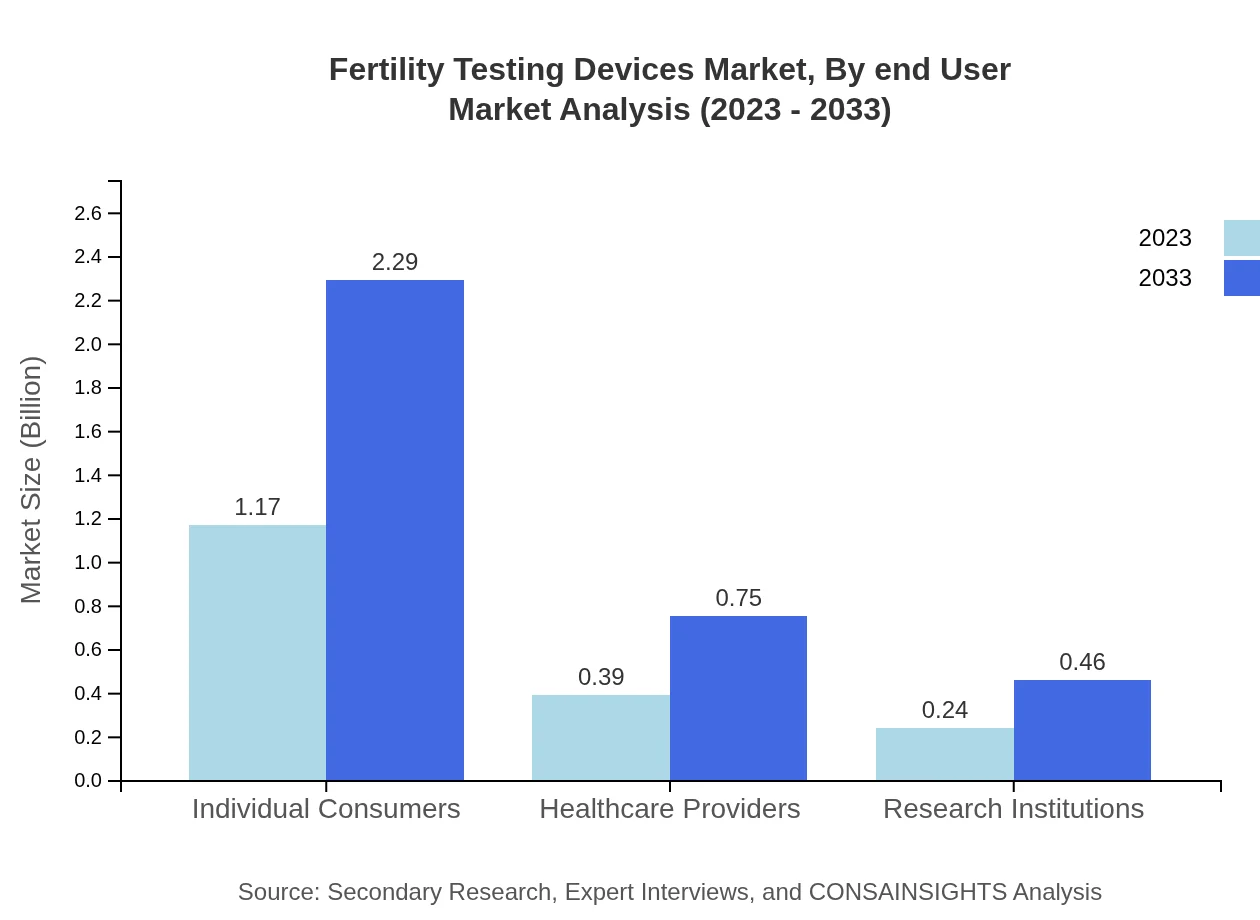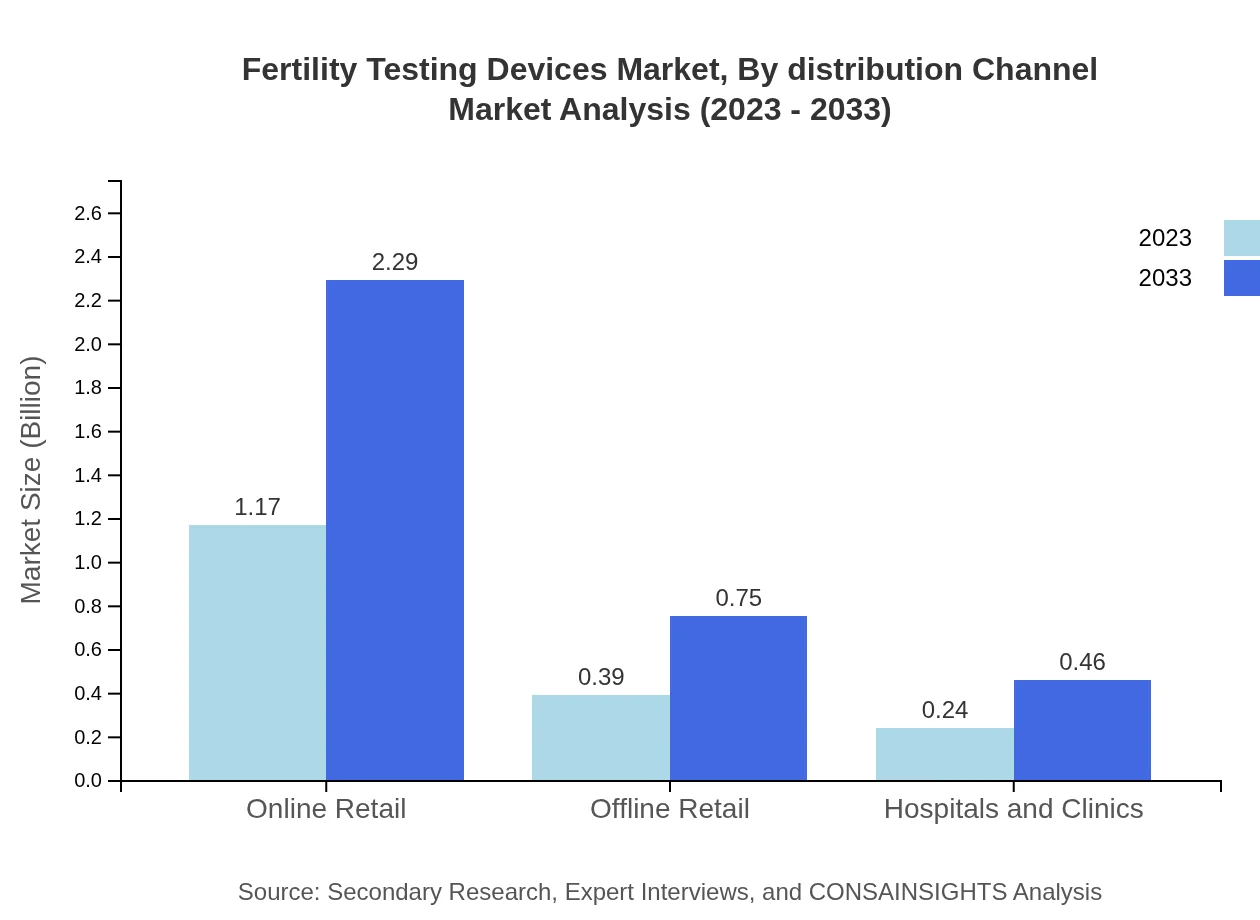Fertility Testing Devices Market Report
Published Date: 31 January 2026 | Report Code: fertility-testing-devices
Fertility Testing Devices Market Size, Share, Industry Trends and Forecast to 2033
This report provides a comprehensive analysis of the Fertility Testing Devices market, covering key insights, market size projections, technological advancements, and regional assessments from 2023 to 2033.
| Metric | Value |
|---|---|
| Study Period | 2023 - 2033 |
| 2023 Market Size | $1.80 Billion |
| CAGR (2023-2033) | 6.7% |
| 2033 Market Size | $3.50 Billion |
| Top Companies | Roche Diagnostics, Abbott Laboratories, Proov, fertilityIQ |
| Last Modified Date | 31 January 2026 |
Fertility Testing Devices Market Overview
Customize Fertility Testing Devices Market Report market research report
- ✔ Get in-depth analysis of Fertility Testing Devices market size, growth, and forecasts.
- ✔ Understand Fertility Testing Devices's regional dynamics and industry-specific trends.
- ✔ Identify potential applications, end-user demand, and growth segments in Fertility Testing Devices
What is the Market Size & CAGR of Fertility Testing Devices market in 2023?
Fertility Testing Devices Industry Analysis
Fertility Testing Devices Market Segmentation and Scope
Tell us your focus area and get a customized research report.
Fertility Testing Devices Market Analysis Report by Region
Europe Fertility Testing Devices Market Report:
Europe currently holds a substantial market share, projected to rise from $590 million in 2023 to $1.15 billion by 2033. Key drivers include a high prevalence of fertility issues, increased healthcare investments, and an established network of fertility clinics.Asia Pacific Fertility Testing Devices Market Report:
The Asia-Pacific region is projected to see notable growth from $320 million in 2023 to $620 million by 2033, influenced by increasing healthcare expenditures and a rising middle-class population. There's a growing acceptance of fertility testing in countries like China and India, attributed to awareness campaigns and healthcare initiatives.North America Fertility Testing Devices Market Report:
The North American market is anticipated to expand from $640 million in 2023 to $1.24 billion by 2033, as the United States leads in fertility technology adoption. Favorable reimbursement policies, significant healthcare investments, and a spike in infertility rates bolster this market's growth.South America Fertility Testing Devices Market Report:
In South America, the market is expected to grow from $150 million in 2023 to $290 million by 2033. The region is witnessing a rising awareness of reproductive health, although challenges such as economic fluctuations and variable healthcare access can impact growth rates.Middle East & Africa Fertility Testing Devices Market Report:
In the Middle East and Africa, the market is expected to grow from $100 million in 2023 to $200 million by 2033, as increasing healthcare initiatives and investments in fertility services are observed. However, cultural beliefs and economic constraints pose significant challenges.Tell us your focus area and get a customized research report.
Fertility Testing Devices Market Analysis By Product Type
Home testing kits dominate the market, growing from $1.17 billion in 2023 to $2.29 billion by 2033, accounting for 65.27% market share over the forecast period. Conversely, laboratory devices show a slower growth trajectory, expected to rise from $390 million to $750 million, maintaining a share of 21.52%.
Fertility Testing Devices Market Analysis By Technology
Urine-based testing remains the most prominent technology, showcasing significant growth from $1.17 billion to $2.29 billion, while blood testing and ultrasound technology also contribute to the overall market. Blood testing is projected to grow from $390 million to $750 million, equating to a 21.52% share.
Fertility Testing Devices Market Analysis By End User
Individual consumers represent the largest end-user segment, anticipated to grow from $1.17 billion in 2023 to $2.29 billion by 2033, holding a steady share of 65.27%. Healthcare providers and research institutions also comprise important segments, growing steadily in line with increasing fertility issues.
Fertility Testing Devices Market Analysis By Distribution Channel
The online retail sector is the key distribution channel, expected to rise from $1.17 billion to $2.29 billion by 2033, capturing 65.27% market share. Offline retail remains relevant, particularly within healthcare settings, but shows a slower growth from $390 million to $750 million.
Fertility Testing Devices Market Trends and Future Forecast
Tell us your focus area and get a customized research report.
Global Market Leaders and Top Companies in Fertility Testing Devices Industry
Roche Diagnostics:
A leader in diagnostics, Roche offers innovative fertility testing solutions that cater to both personal and clinical usage, driving significant market advancements.Abbott Laboratories:
With a range of fertility tests available, Abbott focuses on integrating advanced technology to deliver accurate and timely results, enhancing patient experience.Proov:
Proov specializes in home testing kits for ovulation, focusing on enabling users to accurately determine their fertile windows, thus leading to informed reproductive choices.fertilityIQ:
With a platform that provides insights into fertility treatments and tools, fertilityIQ educates consumers while offering access to vetted resources and recommended testing devices.We're grateful to work with incredible clients.









FAQs
What is the market size of fertility Testing Devices?
The fertility testing devices market reached a size of $1.8 billion in 2023, with a projected CAGR of 6.7% through to 2033. This significant growth reflects the increasing demand for accurate and accessible fertility assessment solutions.
What are the key market players or companies in this fertility Testing Devices industry?
The fertility testing devices industry is dominated by several key players, including major medical device manufacturers, biotechnology firms, and innovative startups focused on reproductive health, enhancing competition and driving technological advancements.
What are the primary factors driving the growth in the fertility Testing Devices industry?
Key factors driving growth in the fertility testing devices market include rising infertility rates, growing awareness around reproductive health, advancements in technology, and increasing accessibility through home testing kits and online retail channels.
Which region is the fastest Growing in the fertility Testing Devices?
The fastest-growing region in the fertility testing devices market is North America, with market size expected to grow from $0.64 billion in 2023 to $1.24 billion by 2033, fueled by high consumer awareness and advanced healthcare infrastructure.
Does ConsaInsights provide customized market report data for the fertility Testing Devices industry?
Yes, ConsaInsights offers customized market report data tailored to specific needs in the fertility testing devices industry, providing detailed insights and analyses that cater to unique business requirements and strategic decision-making.
What deliverables can I expect from this fertility Testing Devices market research project?
Expect comprehensive deliverables such as market analysis reports, regional insights, competitive landscape assessments, consumer behaviors, and segment-specific data for the fertility testing devices market, delivering actionable insights for strategic planning.
What are the market trends of fertility Testing Devices?
Current market trends in fertility testing devices include an increased preference for home testing solutions, advancements in digital health technologies, and a focus on personalized fertility solutions aimed at enhancing user experience and engagement.

